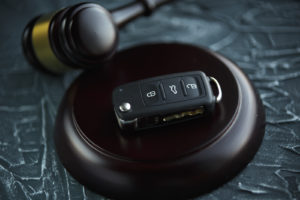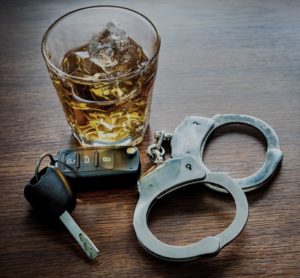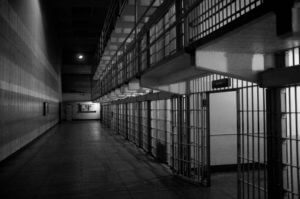Being arrested on a DUI/DWI charge in New Jersey is a traumatic experience. You may be confused and overwhelmed. A DWI conviction affects your life in many ways, including your right to drive.
 Impaired driving is dangerous. The Centers for Disease Control and Prevention (CDC) reports that approximately one-third of the traffic deaths in the U.S. involve an impaired driver. According to state judiciary records, there were 29,942 DUI charges in 2018. In 2019 there have been 23 fatal accidents in Camden County.
Impaired driving is dangerous. The Centers for Disease Control and Prevention (CDC) reports that approximately one-third of the traffic deaths in the U.S. involve an impaired driver. According to state judiciary records, there were 29,942 DUI charges in 2018. In 2019 there have been 23 fatal accidents in Camden County.
That’s why Camden County authorities take drunk driving very seriously. If you are convicted, the consequences may damage your life in many ways. You need an experienced criminal defense lawyer to explain the charges, guide you through the process, and protect your rights.
DUI/DWI Law in New Jersey
Driving while intoxicated (DWI) or driving under the influence (DUI) is illegal. In New Jersey, there is no difference between a DWI and a DUI, so you may see the terms used interchangeably.
 In New Jersey, a driver can violate the DWI laws in two ways.
In New Jersey, a driver can violate the DWI laws in two ways.
- Driving while impaired, which is based on the driver’s mental and physical ability to operate a motor vehicle
- A violation of the “per se” laws, which means that the driver’s chemical test (blood, breath, or urine) shows a blood alcohol concentration (BAC) of 0.08 percent or higher.
The law sets the BAC level at 0.08 percent, but if your BAC is less, a court can still convict you of driving under the influence if your driving is impaired. Research shows that drinking even small amounts of alcohol can impair reaction time, vision, concentration, tracking, judgment, and coordination.
It is also against the law to operate a motor vehicle “under the influence of a narcotic, hallucinogenic or habit producing drug.” The law also prohibits “allowing another person to operate a motor vehicle when that person does so in violation of the driving while intoxicated (DWI) law.” The penalties are all the same regardless if you are driving drunk or allowing a person to drive drunk.
What Is the Legal Process?
 Each case is unique. However, when you are arrested and charged with a DWI, the legal process may include:
Each case is unique. However, when you are arrested and charged with a DWI, the legal process may include:
- Booking and bail
- Arraignment
- Preliminary hearing
- Pretrial motions
- Plea bargains
- Trial
- Sentencing
- Appeals
- Expungement
Penalties
 The penalties for driving under the influence vary widely, but they can be harsh. The punishment is affected by blood alcohol content and previous offenses. Blood alcohol concentration (BAC) is separated based on two values:
The penalties for driving under the influence vary widely, but they can be harsh. The punishment is affected by blood alcohol content and previous offenses. Blood alcohol concentration (BAC) is separated based on two values:
- A BAC above 0.08 percent, but less than 0.10 percent
- A BAC higher than 0.10 percent.
First-Time DUI
- Loss of your driving privileges for three months.
- At least twelve hours of jail time and no more than 30 days.
- Between $250 and $400 in fines.
- A $1,000 car insurance surcharge each year for three years.
- Additional fees and surcharges are more than $525.
- Ignition Interlock for six to twelve months.
- Alcohol/substance abuse assessment.
- Mandatory alcohol classes at an Intoxicated Driver Resource Center (IDRC) for two days.
- Fines and license suspensions might be more severe if the defendant had a BAC of 0.10 percent or higher.
- Forfeiture of your driving privileges for at least seven months and no longer than one year.
- Between $300 and $500 in fines.
DUI in a School Zone
 After several accidents involving school children and drunk drivers, the New Jersey Legislature increased the penalties for DUI offenses that take place within a school zone.
After several accidents involving school children and drunk drivers, the New Jersey Legislature increased the penalties for DUI offenses that take place within a school zone.
Penalties include an additional $500 to $800 fine, up to 60 more days of jail time, and suspended driving privileges for an additional one to two years.
Second DUI
For a subsequent offense, penalties become more severe. Possible penalties are the same, whether your BAC is 0.08 percent or 0.10 percent. Penalties for a second DUI offense within ten years of your initial offense may include:
- Minimum fines of $500 and a maximum of $1,000
- 30 days of community service
- 12-48 hrs Intoxicated Driver Resource Center
- Car insurance surcharges of $3,000 over three years
- Jail time between 2-90 days
- A minimum of 2 years of license suspension
- An ignition interlock device while license is suspended and following the return of license
Third or Subsequent Offense Within Ten Years of the Second Offense
Again, with subsequent offenses, the penalties increase.
- Minimum $1,000 fine
- Community service for a maximum of 90 days.
- Intoxicated Driver Resource Center for a period of 12-48 hours
- Car insurance surcharges of $4,500 over three years
- 180 days of jail time
- Ten years of license suspension
- An ignition interlock device
Enhanced penalties
 The law may impose enhanced or additional penalties in certain circumstances, such as having a child in the car at the time, refusal to submit to a breath test, and a driver under the age of 21.
The law may impose enhanced or additional penalties in certain circumstances, such as having a child in the car at the time, refusal to submit to a breath test, and a driver under the age of 21.
Underage drivers fall under the zero-tolerance laws. Therefore for these drivers, the law requires a lower BAC, and license suspensions are longer.
There are surcharges and other associated costs for DUI convictions, such as fees for a $100 Alcohol Education and Rehabilitation Fund (AERF), a $75 Neighborhood Services Fund, $280 for the Intoxicated Driver Resource Center, the cost of an Ignition Interlock Device, and more.
Possible Defenses
Depending on the facts of the case, your attorney may be able to challenge the DWI charge on various grounds, such as:
- Whether the police had probable cause for the stop.
- Was the surface slippery or uneven when you took your sobriety test?
- Are there other factors that may have affected your balance or stability, such as injuries or medications?
Are You Charged With a DUI/DWI in Camden County?
If you are charged with violating New Jersey’s complex drinking and driving laws in Camden County, you need an experienced DUI/DWI attorney to defend you. For more information or a consultation, contact the Law Office of Matthew V. Portella at (856) 310-9800 or contact us online.

